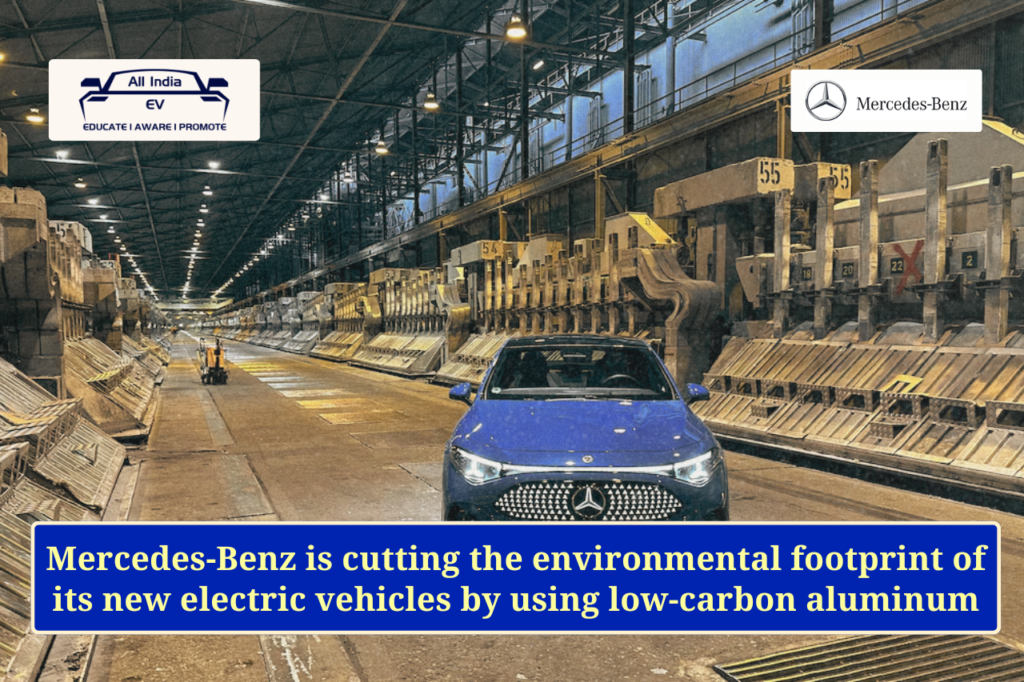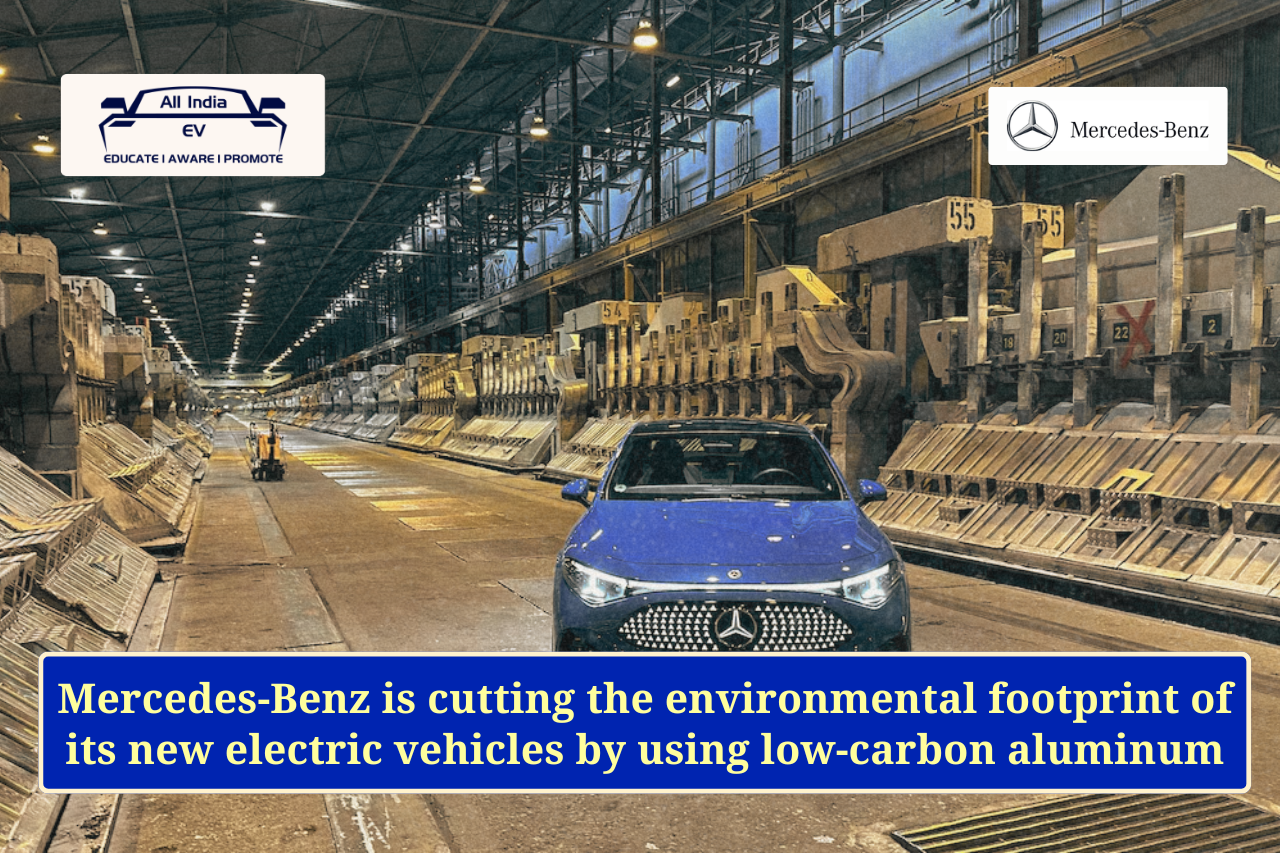
Mercedes-Benz Showcases CLA EV at Hydro Aluminium Plant in Aardal, Using Low-Carbon Aluminium for Car Manufacturing
In a move to make electric mobility more sustainable, Mercedes-Benz has partnered with Norwegian metals producer Norsk Hydro to source low-carbon aluminium for its upcoming electric CLA model. The initiative is part of the automaker’s wider strategy to decarbonise operations and reduce CO2 emissions across its EV lineup.
Aluminium Made with Renewable Power and Recycling
The aluminium supplied by Norsk Hydro is produced using renewable energy and contains 25% recycled scrap, significantly lowering the environmental impact compared to conventional methods. According to the companies, this new aluminium causes just 3 kg of CO2 emissions per kilogram, compared with the global average of 16.7 kg.
By integrating the material into its new EVs, Mercedes has cut CO2 emissions by 40% in the production of the electric CLA, compared to its non-electric predecessor.
Balancing Cost with Sustainability
Mercedes-Benz executives acknowledged that using low-carbon aluminium comes with extra costs, but emphasized the brand’s commitment to aligning premium quality with sustainability. “Sustainability and desirable products go hand in hand,” said Gunnar Guthenke, Vice President of Procurement and Supplier Quality at Mercedes-Benz.
Norsk Hydro CEO Eivind Kallevik added that partnerships allow companies to share the cost of decarbonising value chains, ensuring that the financial burden does not fall solely on manufacturers or consumers. Despite the higher price, demand for low-carbon materials is increasing globally, even amid economic challenges.
A Growing Market for Low-Carbon Products
Executives from both companies highlighted the rising consumer demand for sustainable materials, particularly in industries like automotive where decarbonisation is under close scrutiny. For Mercedes, adopting green aluminium is a critical step in positioning itself as a leader in luxury sustainable mobility.
Addressing Past Criticism
Mercedes-Benz has previously faced criticism over its environmental messaging, including a lawsuit from a climate group in Germany, which was dismissed in 2022. With this new initiative, the company is reinforcing its commitment to real, measurable reductions in emissions rather than relying on marketing claims alone.The low-carbon aluminium initiative demonstrates how collaborations between automakers and material suppliers can drive meaningful progress in the global transition to cleaner mobility.










